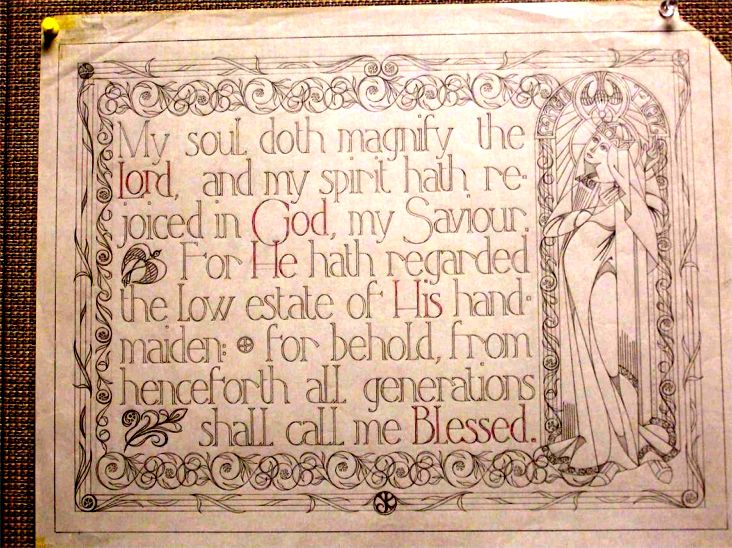“The Word Became Flesh”

John 1:14 – December 27, 2020
We all use language. Every day. In conversation at home, on the cellphone, or at work. Reading a news site or writing e-mail. Words communicate meaning, ideas, stories. Each one of us has a personal story. Each story is individual and unique. Our stories are communicated using words and language, and each individual has a creative, unique way to tell his or her story.
The story of a personal life makes sense because it is part of a larger story, the Story that has the story of Jesus Christ at its center. This story of God’s initiative calls for my gratitude and response, a Story some theologians have called ‘the history of salvation.’ It is the Story set forth in the Word of God that crosses boundaries and transcends lines of race, class, culture and age.
Our Scripture text for tonight, the first 14 verses of John’s Gospel, is a restatement of an old theme. Remember Genesis 1:1? “In the beginning, God created the heavens and the earth.” Scholars believe the apostle John was thinking of that introduction to the Greatest Story ever told. John 1:1: “In the beginning was the Word.” John reframed that Story, and gave it a new look from a different perspective.
The almighty God wanted to communicate with us puny, limited human beings. But how was God supposed to communicate God’s Story? What with the stress, anxiety, isolation and depression running rampant, all across our country? For that matter, what about communicating God’s Story in the time of COVID?
The Gospel of John tells us how, no matter what the earthly situation holds. In the beginning was the Word. The Word was God. The Word is God. Jesus is the Word. John 1:14 says that the Word, Jesus, became flesh, and . . . the Word dwelt among us.
Think about it: the whole idea of God becoming a helpless baby, able to feel cold and heat, to be hungry and thirsty, with blood and bones, a nervous system and a digestive system. So staggering was this idea that some of the people in John’s day could not believe it. God? the creative God who made heaven and earth? Coming to earth as a helpless, human baby? No way!!
And, not only did this Creator God appear in creation so that our eyes could see Him, this almighty God has the crazy idea of dwelling among people. Becoming one of us limited human beings, sharing our food and living in our midst. Jesus became fully man. He didn’t just seem to be a man, and pretend to be human. He really and truly became man, living with us as one of us.
What a way for the almighty, eternal, creative God to communicate to us in a way that we limited human beings might possibly understand. God also wanted humanity to understand His Word made flesh, the one called Jesus of Nazareth.
A good many years ago, a bible translator went to a remote, mountainous region in the interior of Africa. He worked hard at turning an obscure oral language into a written language, which involved decoding the language, writing a grammar, learning extensive vocabulary, and finally translating a portion of the Bible into the heart language of that particular people-group.
After years of intense work and language preparation, when he felt he was ready, the missionary made his presentation of the Story of Jesus to a group of headmen from the tribe. He was surprised at their response, which was unlike any he had ever had before in all his years of telling people the Story of Jesus. The men just sat there in silence. Then, the chief came forward.
The chief grasped the missionary’s hands and, with tears in his eyes, thanked him for coming to tell them the Story of Jesus. “This Story of good news is the one my people have waited for, all their lives long!!” And then came the clincher: the chief asked, “Your tribe has had this Story for many, many years. What took you so long to tell us?”
This is a Story that can change people’s lives for eternity. Telling the God’s story in someone’s heart language is one of the best ways to communicate how much God loves us.
Praise the Lord that God sent Jesus into this world, the Word incarnate, the Word that became a helpless baby in Bethlehem. Praise God that God has repaired that broken relationship with us, and to be called the children of God. The Lord loved us so much that God gave His only begotten Son on our behalf, to reconcile us to God for eternity.
Gloria in excelsis Deo.
(Suggestion: visit me at my regular blog for 2020: matterofprayer: A Year of Everyday Prayers. #PursuePEACE – and my other blog, A Year of Being Kind . Thanks!






